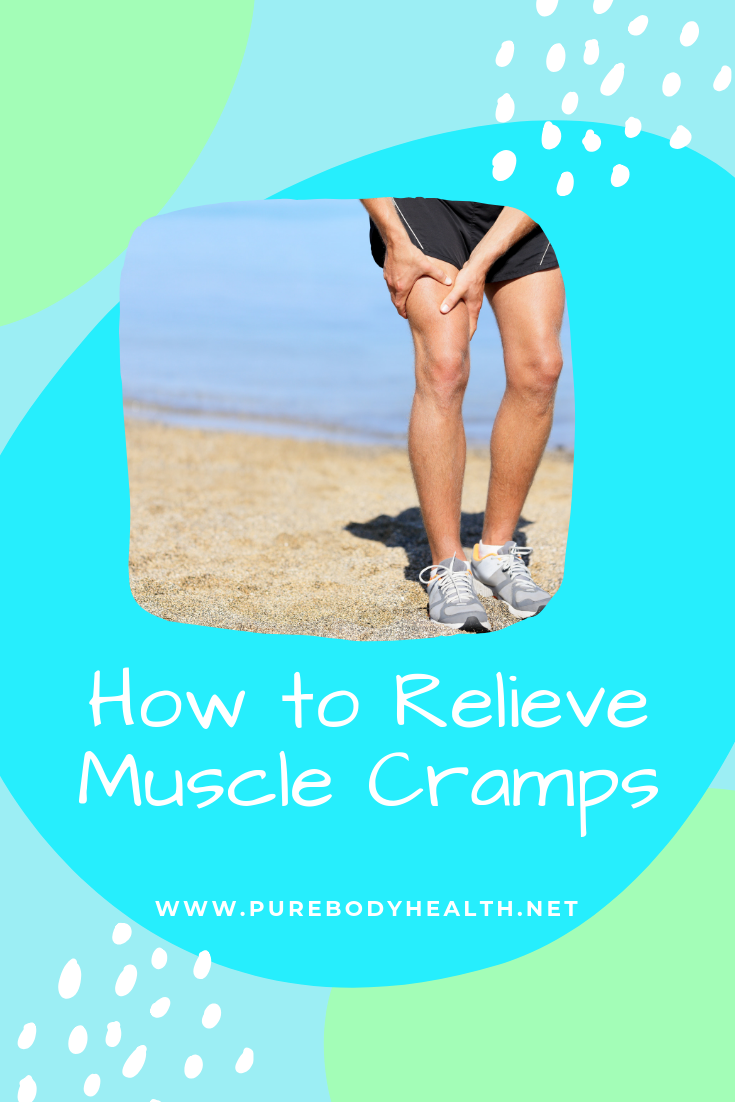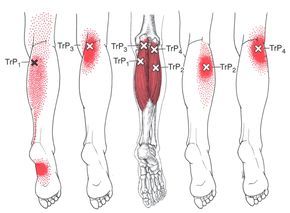
Muscle cramps. Yuck! Am I right? Do you get woken up at night with a nasty cramp? Do you ever have to pause a workout because your muscle cramps half way through your set? Yikes! Are you pregnant and struggling to ease your calf cramps? Not fun! Well keep reading because today we are going to discuss the ins and outs of muscle cramps and give you our top tips for muscle cramp relief.
CAUSES & RISK FACTORS OF MUSCLE CRAMPS
The causes of muscle cramps are still being studied and results are inconclusive. However, there are theories showing common denominators regarding the causes of muscle cramps. Studies show that the following listed are all risk factors for cramps, and many of them can overlap. These include:
- Intensive training programs
- Pregnancy – especially the 2nd & 3rd trimesters
- Nutrition
- Muscle fatigue
- Dehydration
- Active Trigger Points in muscles
What are trigger points? Trigger points are hyper-irritable spots in muscle tissue, that have remained contracted while, the rest of the muscle has relaxed (A.K.A. pesky knots!). There are many causes of trigger points such as overuse, under-use, dehydration and injury. If left untreated, trigger points can cause dysfunction, injury and pain (sometimes in the form of a cramp). Ouch!
The most common cramp complaints we see in the clinic are in the calf (particularly the Gastrocnemius muscle – pictured below). There are 4 common trigger points in the gastrocnemius, all sitting around the top of the muscle behind the knee. These spots are frequent causes for night time cramps.
Athletes undergoing intense training programs, as well as regular people, like your friend ‘Jim’ who goes to the gym on the odd occasion, are also likely to get muscle cramps. This is because muscle fatigue is another common risk factor. Putting muscles under load, in a way that they may not be used to, can lead to excess strain through those areas, which can lead to muscle cramps.
While there is room for further research in the way of cramps and chemical imbalances, the most common discussed with relation to cramps are: magnesium, potassium & sodium. If you need guidance with nutrition, we suggest you see a Nutritionist. We recommend Standout Nutrition and Vitality Holistic Nutrition.
PREVENTION & MANAGEMENT OF MUSCLE CRAMPS
While there are no sure ways found yet to ‘prevent’ a muscle cramp from occurring, there are precautions you can take to reduce your risk. Such as:
- DRINK PLENTY OF WATER – ESPECIALLY IF EXERCISING. Our soft tissue requires fluid for movement. If you aren’t drinking enough water while exercising, the muscles and surrounding connective tissue (fascia) will bind together, making it more difficult to achieve full range of motion and putting you at risk to sustain an injury, develop trigger points and get cramps.
- ADEQUATE RECOVERY AFTER TRAINING. You can do this by stretching, foam rolling, proper cool downs, or using a spiky massage ball for more targeted tissue release. Ensuring you have proper recovery with training can help to prevent trigger points forming and reducing your chances of fatigue, dysfunction and injury.
- TARGETED STRENGTH TRAINING. As muscle fatigue is closely related to cramps, it is important to go back to the basics and first increase the stability through an area you are prone to get cramps in. This will help ensure that area is able to support itself during exercise sufficiently enough to prevent premature fatigue and ultimately, cramps.
- VISIT A MYOTHERAPIST Come visit us, your local Myo. Myotherapy is essential if you suffer from muscle cramps. Myotherapists can use multiple techniques to treat, manage and help prevent your cramps from returning; such as deep tissue massage, trigger point therapy, dry needling, load management, and corrective exercises.
FIND OUT MORE ABOUT MUSCLE CRAMPS
If you would like more information about muscle cramp relief, simply send us an email or book online and find out more about how we can help you to feel better and move better.


Recent Comments